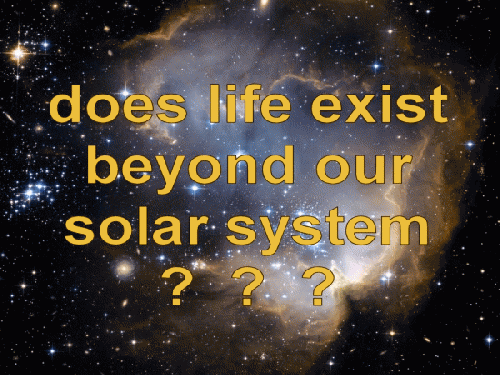What is required for life to exist on our planet is extremely complex, intricately balanced and fine-tuned in relation to the size and position of the earth, the sun, the moon and other planets, the earth's magnetosphere and various atmospheric layers, the abundance of water, various oceanic and weather patterns and even the temperature, size and properties of the earth's inner core. And, this is only a small fraction of the balanced complex reality necessary for our existence.
Because of this, some scientists still insist life may be extremely rare in the universe. But it appears exo-planets may far outnumber the stars and today, many if not most scientists believe life is probably abundant in the cosmos. Perhaps few of us stop to consider how truly different, diverse and complex life in the larger universal reality, may in fact be.
At least one scientist has proposed life might exist on giant gas planets, hovering in the atmosphere with no need of a solid surface. We often assume far too much based on our own tiny window of experience while, the experience of intelligent beings on other worlds may be far different than our own.
We know life on earth is incredibly complex and diverse, even among microbial kingdoms. We can only wonder what it might be like to live on a world far less violent and prone to disease, starvation and death than our own. Given the abundance and complexity of life on earth and the size and scope of the universe, we can only marvel and remain in awe of the infinite possibilities.
Human technology arises out of our specific needs for survival. While other forms of life on earth build webs, nests and some even use sticks as tools, what is called "technology" is essentially viewed as being unique to humans. If food was easily and readily available and there was no violence or daily struggle to survive, human technology might not have ever arisen on earth.
Where there is no farming or struggle to eat, there may be no concept of a wheel or plow. Where there's no hunting for food and no war, there may be no concept of a knife, spear, bow and arrow or other basic implements at the root of our technology.
Would beings more intelligent than ourselves necessarily have any concept of science and education? Would they wear clothing or need to build structures for protection in a perhaps far less hostile environment? In a world without living beings eating each other, without war and other oppression or struggle for food, shelter and protection, would there be any such thing as "survival of the fittest"?
Does science chain our brains in far too narrow of a box? You decide.
Link to Footnotes and Documentation:
www.freedomtracks.com/500/otherlife.html






